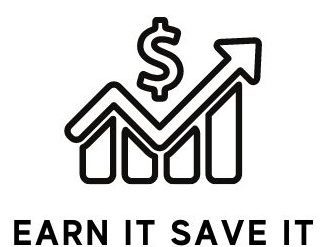As you look ahead to 2025, establishing healthy financial habits can set the foundation for financial stability and reduce stress in your life. It’s also vital to stop living paycheck-to-paycheck. Personal finance is not just about budgeting; it’s about creating a robust financial plan that aligns with your goals. Embracing good money management practices can empower you to navigate your financial journey with confidence.
Consider how your financial habits today will impact your future. Whether you’re saving for a major purchase, planning for retirement, or simply trying to manage daily expenses, small changes can make a big difference. Engaging with a partner in this journey can also motivate you to stay on track and make better financial decisions together.
By adopting these strategies in 2025, you can cultivate a healthier financial mindset. Prioritizing financial health will help you feel more secure and in control of your money, ultimately leading to a more fulfilling life.
Trim Expenses In 2025 (and Stop Living Paycheck-to-Paycheck)
Trim your expenses by starting with a clear budget. Set realistic spending limits for each category, whether it’s groceries, entertainment, or utilities.
Using a budgeting app can simplify this process. Track your spending in real-time and identify areas where you can cut back. Many apps offer features that categorize your expenditures automatically.
Consider the zero-based budget method. Allocate every dollar of your income to specific expenses. By doing this, you know exactly where your money is going and can avoid unnecessary spending.
Another effective approach is the envelope method. Withdraw cash for each category and place it into labeled envelopes. Once an envelope is empty, you can’t spend any more in that category until the next budgeting period.
Review your subscriptions regularly. Cancel any that you don’t use often enough. This can free up funds for more important expenses or savings.
Practice mindful spending by asking yourself if each purchase aligns with your values and goals. Take a moment to consider if the item is truly necessary.
Lastly, look for deals and discounts. Use price comparison tools or cash-back offers to maximize your savings. Small changes can lead to significant savings over time.
Avoid Overpaying In 2025 (and Stop Living Paycheck-to-Paycheck)
To keep your finances healthy in 2025, avoid overpaying in various areas. Here are some tips:
Review Your Insurance Policies
Evaluate your current insurance coverage. Ensure it matches your needs without being excessive. You could save by adjusting your coverage limits or shopping around for better rates.
Invest Wisely
Monitor your investments closely. Avoid funds with high fees that can eat into your returns. Research options that align with your financial goals, focusing on low-cost index funds or ETFs.
Stay Ahead of Inflation
Inflation can erode your purchasing power. Allocate a portion of your portfolio to assets that typically outperform inflation, like real estate or commodities.
Update Your Estate Plan
Regularly review your estate plan to avoid unnecessary expenses. Ensure your documents, such as wills and trusts, reflect your current wishes. This can help reduce legal fees and taxes for your heirs.
Calculate Your Net Worth
Keep a close eye on your net worth. This will help you identify areas of excess spending and adjust accordingly. A simple formula is:
| Assets | Liabilities |
|---|---|
| Total Assets | Total Liabilities |
| Net Worth | Assets – Liabilities |
By staying informed and proactive, you can avoid overpaying in 2025 and maintain a healthy financial outlook.
Grow Your Emergency Fund In 2025 (and Stop Living Paycheck-to-Paycheck)
Building your emergency fund in 2025 is essential for financial security. An emergency fund can help you manage unexpected expenses, like job loss or medical emergencies.
Start by setting a clear savings goal. Aim for three to six months of living expenses. You can break this down into smaller, achievable milestones to keep your motivation high.
Here are some practical steps to boost your savings:
- Automate Your Savings: Set up automatic transfers from your checking account to your savings account each month.
- Cut Unnecessary Expenses: Review your budget and identify areas where you can spend less.
- Take Advantage of Windfalls: Use bonuses, tax refunds, or any unexpected money to increase your savings.
Consider using a high-interest savings account to maximize your returns. This way, your emergency fund can grow while remaining accessible for emergencies.
Review your emergency fund regularly. Adjust your savings goals as your life circumstances change, such as moving to a new job or experiencing changes in your monthly expenses.
By prioritizing your emergency fund in 2025, you’ll gain peace of mind knowing you’re financially prepared for life’s surprises.
Expand Your Retirement Savings In 2025 (and Stop Living Paycheck-to-Paycheck)
Expanding your retirement savings in 2025 is a smart move for your financial security. Here are some practical steps you can take:
Review Your Retirement Accounts: Take a close look at your current retirement accounts. Make sure you are maximizing contributions to accounts like 401(k)s or IRAs.
Increase Contribution Rates: If your employer allows, consider increasing your contribution rates. Even a small percentage can add up over time.
Diversify Your Investment Portfolio: Don’t just rely on one type of investment. A mix of stocks, bonds, and mutual funds can help balance risk and growth.
Set Specific Savings Goals: Outline how much you want to save each month. Setting clear goals keeps you motivated.
Utilize Catch-Up Contributions: If you’re 50 or older, take advantage of catch-up contributions. This allows you to save more beyond standard limits.
Consider Roth Accounts: Think about adding a Roth IRA to your plan. Tax-free growth can be beneficial in the long run.
Stay Informed: Keep up with financial news related to retirement planning. Staying informed can help you make better decisions.
By focusing on these areas, you can make significant strides in your retirement savings. Taking proactive steps now can lead to greater financial security later.
Get A Side Hustle To Escape Living Paycheck To Paycheck In 2025 (and Stop Living Paycheck-to-Paycheck)
Finding a side hustle can provide extra income and help you break free from living paycheck to paycheck. There are many opportunities to explore based on your skills and interests.
Here are some popular side hustle ideas for 2025:
- Freelancing: Offer your expertise in writing, graphic design, or web development on platforms like Upwork or Fiverr.
- Tutoring: Share your knowledge in subjects you excel at, either online or in person.
- E-commerce: Start an online store through Shopify or Etsy, selling handmade or sourced products.
- Ridesharing: Drive for services like Uber or Lyft during your free hours.
- Pet Sitting/Dog Walking: Love animals? Turn that passion into a service through sites like Rover.
When choosing a side hustle, consider the following:
| Factor | Considerations |
|---|---|
| Time Commitment | How many hours can you devote? |
| Skills & Interests | What are you good at or enjoy? |
| Profit Potential | What income goals do you have? |
A side hustle can help you build an emergency fund or pay off debt. With dedication, this extra work may lead to financial stability and peace of mind. Keep your goals clear and stay motivated.
Frequently Asked Questions
Here you will find answers to common questions about healthy financial habits that can support your goals in 2025. These insights will help you set meaningful objectives and adopt effective strategies for financial health.
What are significant financial objectives to aim for in 2025?
In 2025, you should focus on building an emergency fund that covers at least three to six months of living expenses. Also, aim to pay down high-interest debt and improve your credit score. Setting SMART goals, like saving a specific amount each month, can provide clarity and direction.
How can young adults establish robust financial health in the coming years?
Young adults can begin by creating a budget that tracks income and expenses. Prioritizing savings, even in small amounts, is essential. Additionally, consider investing in retirement accounts early to take advantage of compound interest.
What are key strategies for financial planning as we approach 2025?
Developing a comprehensive financial plan involves assessing your current financial situation and setting long-term goals. Consistent tracking of expenses and adjusting your budget as needed will help ensure you stay on course. Regularly reviewing and updating your financial plan is also crucial, especially as your circumstances change.
Can you suggest some financial tips to start the New Year on the right foot?
Kick off the New Year by reviewing your financial goals and progress from the previous year. Make a plan to automate savings and diversify your investments. Establish a monthly check-in to evaluate your budget and adjust it based on your financial needs.
How does the 50/30/20 budgeting rule adapt to economic changes expected in 2025?
In 2025, the 50/30/20 rule can still apply but may require adjustments based on inflation and living costs. Allocate 50% of your income to needs, 30% to wants, and 20% to savings and debt repayment. Monitor your spending closely to maintain balance in shifting economic conditions.
What are three foundational financial habits to cultivate for long-term security?
First, prioritize consistent savings to build a financial cushion. Second, maintain a healthy credit score by paying bills on time and managing credit wisely. Lastly, educate yourself about personal finance to make informed decisions and adapt to changes over time.

